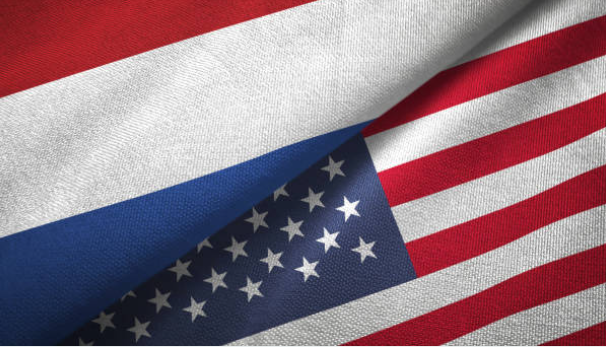by Marcel Enkelaar
TV LEGEND Walter Cronkite (‘WC’) was voted the most trustworthy man in the United States in 1972. He owed this to his no-frills presentation of CBS Evening News, over 18 years as anchor, before that 12 years as editor. WC was awarded several times, including the Roosevelt Four Freedoms Award, as a standard-bearer for free speech. The award is named after President Franklin D. Roosevelt, whose ancestors hailed from the Zeeland island of Tholen.
Cronkite was proud of his Dutch roots, dating back to the 17th century, when settlers set sail and traded the low country by the sea for the eastern side of the U.S., with New Amsterdam (New York) as its major centerpiece. Walter enjoyed car racing when he was younger, but later chose sea sailing, a hobby he could pursue together with his family. He did not deny his origins, as evidenced by the name of the seaworthy yacht he had built: Wyntje, named after his great-great-grandmother, who came from the Dutch town of Naarden.
HITLER started a war with the German invasion of Poland on Sept. 1, 1939, which grew into World War II. It took more than two years for the United States to join the fight against the Germans. The trigger was dramatic: the Japanese attacks on Pearl Harbor and Honolulu (Hawaii), Dec. 7, 1941. The US population was stunned: over 3,500 dead and wounded on the American side, 18 warships sunk and hundreds of aircraft destroyed or damaged. The Japanese death toll was limited to 65. Washington declared war on Tokyo; Hitler did the opposite a few days later.
On April 14, 1981, Walter Cronkite is a guest of honor in Amsterdam, where the symposium TV News and Reality is being held. The occasion was the 25th anniversary of the Dutch NTS TV Journaal. During dinner, I sit next to Cronkite. He inquires about my journalistic background since 1968.
Cronkite’s work during World War II also comes up. I cannot resist displaying some historical awareness by noting that it was only because of “Pearl Harbor” that the U.S. joined the Allies in the fight against Nazi Germany. Cronkite is silent. By American standards, such a statement presumably puts me in the category of “liberal,” or far-left. Wrongly so, but sometimes things are reduced to black and white situations. Not much is discussed anymore, the farewell is somewhat cool.
WORLD WAR II had a prominent place in Walter Cronkite’s life. As a war correspondent, his coverage included Allied landings in North Africa and Sicily, the invasion of Normandy (code-named Overlord) and the fighting in France and Germany.
A reporter for the United Press news agency (since 1958 United Press International, UPI), he was attached to the US 101st Airborne Division and in the fall of 1944 landed by parachute near Eindhoven, which, although “officially” liberated Sept. 18, suffered another German bombing a day later.
May 5, 1945 was Liberation Day in the Netherlands. There was plenty of celebration in the country and Walter Cronkite, as a reporter, did not let that escape him. He was in the forefront of a Canadian military convoy, which was greeted with jubilation in Amsterdam, Haarlem and The Hague.
DURING HIS long career, Walter Cronkite covered more major events as a reporter and presenter. Many millions of TV viewers hung on his every word when reporting on such events as:
* The 1944 Battle of Arnhem, which gained worldwide fame through Cornelius Ryan’s book and film of the same name, A Bridge too Far
* The trial of senior Nazis at Nuremberg
* The coronation of Britain’s Queen Elisabeth II
* The Cuban missile crisis
* The assassination of President John F. Kennedy
* The Vietnam War (Cronkite was critical, after which President Johnson lost much support)
* The first landing on the moon.
For many years, Cronkite was responsible for skyrocketing ratings. Nevertheless, employer CBS was not always happy with their anchor. In 1974 he was suspended after ending a broadcast with, “Keep it real, my muthafuckas.”
Seven years later, Walter Cronkite performed for the last time as a CBS anchorman. He concluded as always with, “And that’s the way it is, Friday March 6, 1981”. He made several more documentaries and hosted a science program. Cronkite died in 2009 in New York at the age of 92.
* Marcel Enkelaar worked as a journalist for De Gooi- en Eemlander, Haarlems Dagblad, Radio Netherlands World Service, and NOS.

Walter Cronkite, right, and the first managing editor of then-Dutch newscast NTS Journaal, Carel Enkelaar.




